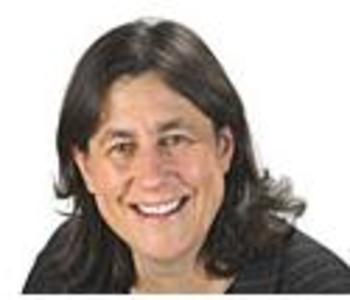One of the first consequences of Stéphane Dion's weekend leadership victory is that there will almost certainly be more federalist MPs in Quebec after the next election. Some of them - at least as many as half a dozen - could be Liberal. But another six or seven could be Conservative.
If that happens, it won't matter much to Bloc Québécois Leader Gilles Duceppe which of his federalist adversaries brings down his candidates. In the post-Liberal leadership environment, the number of Bloc ridings that will be at play in the next election has basically doubled.
Instead of mounting a counter-offensive against the Conservatives to recoup some of its losses from the last election, the sovereignist party is poised to spend the next campaign fending off two separate but equally spirited challenges for its own seats.
As things stand today in Quebec - and keep in mind it is a fluid scene - Stephen Harper's and Stéphane Dion's respective weaknesses are also their greatest reciprocal assets.
Take the island of Montreal, the last Liberal fortress in Quebec. Since his election victory, Harper has failed to make inroads in the province's largest city.
But the net result of the Conservative absence from the Montreal landscape is to make the Bloc more vulnerable to a re-energized Liberal party.
In the last election, Duceppe captured a handful of previously safe Liberal seats in and around the city. But the Bloc share of the vote did not go up. Instead, Liberal supporters stayed home in droves. Many were as turned off by Paul Martin's decision to let an inquiry loose on the Chrétien government sponsorship program as by the scandal itself.
Given his unity record, does anyone doubt Dion's capacity to remobilize those staunch federalist voters?
Outside Montreal, the same dynamics are at play but in the reverse.
The Liberal party is in shambles throughout francophone Quebec, leaving the Conservatives as the main federalist challenger to the Bloc. With the exception of Transport Minister Lawrence Cannon's Pontiac riding, in the federalist Outaouais, the Bloc previously held all the seats the Conservatives won last January.
In the nationalist areas of Quebec, Dion's aggressive post-referendum record makes him a harder sell than Michael Ignatieff or even Bob Rae. But an enduring Liberal weakness in those regions comes with a federalist silver lining as it enlarges the pool of voters available to the Conservatives to win their own battles against the Bloc.
Since Dion's victory, two contrary arguments have surfaced in the debate over his Quebec prospects. The importance of each of them has often been overstated.
On the pro-Dion side, some argue - usually from outside the province - that his native son status will trump his liabilities. In fact, the native son card is no longer the ace that it was in the days of Pierre Trudeau and Brian Mulroney. Neither of them had to compete against a Bloc leader who could claim first call on francophone loyalties.
On the con-Dion side, many fear that he will die the death by a thousand cuts at the hand of a hostile Quebec chattering class. But the reality is that Dion already commands more respect among the Quebec elite than Jean Chrétien ever did.
That's because Dion fought his battles on the front of ideas rather than in the trenches of partisan politics. And then, even as they disagree with him, members of the Quebec chattering class know one of their own when they see one, something they never felt about Chrétien.
They may not have wished for him to win but most Quebec opinion-makers never challenged the fact that Dion was as good a Quebec leadership contender as the Liberals could hope for. That, by the way, likely accounts for the high proportion of Quebecers who felt that the Liberals made the right choice in the immediate aftermath of the convention.
When all is said and done, the Liberal challenge in Quebec is fundamentally the same as in the rest of Canada.
In Dion, the party has a leader who stands to keep the Conservatives shut out of the big cities in the next election, possibly expanding the party's urban base in the process.
That may be enough to elect a minority Liberal government, or, short of that, keep the Conservatives down to another minority. But in his home province as well as in the rest of the country, Dion may need a second election to move the Liberals back into majority territory.



































Laissez un commentaire Votre adresse courriel ne sera pas publiée.
Veuillez vous connecter afin de laisser un commentaire.
Aucun commentaire trouvé